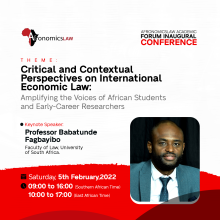Statement in Support of Ghana’s Ministry of Finance Response to Moody’s Downgrades: Credit Rating Agencies Should Suspend Downgrades Until the Pandemic is Over
The African Sovereign Debt Justice Network (AfSDJN), is a coalition of citizens, scholars, civil society actors and church groups committed to exposing the adverse impact of unsustainable levels of African sovereign debt on the lives of ordinary citizens, fully supports the February 6th Statement by the Ghanaian Ministry of Finance protesting Moody’s downgrades to CAA1 of Ghana’s Long-Term Issuer and Senior Unsecured Bond Ratings.
